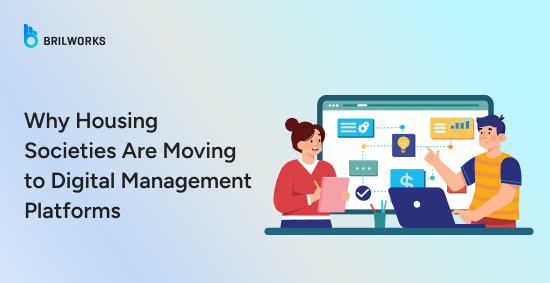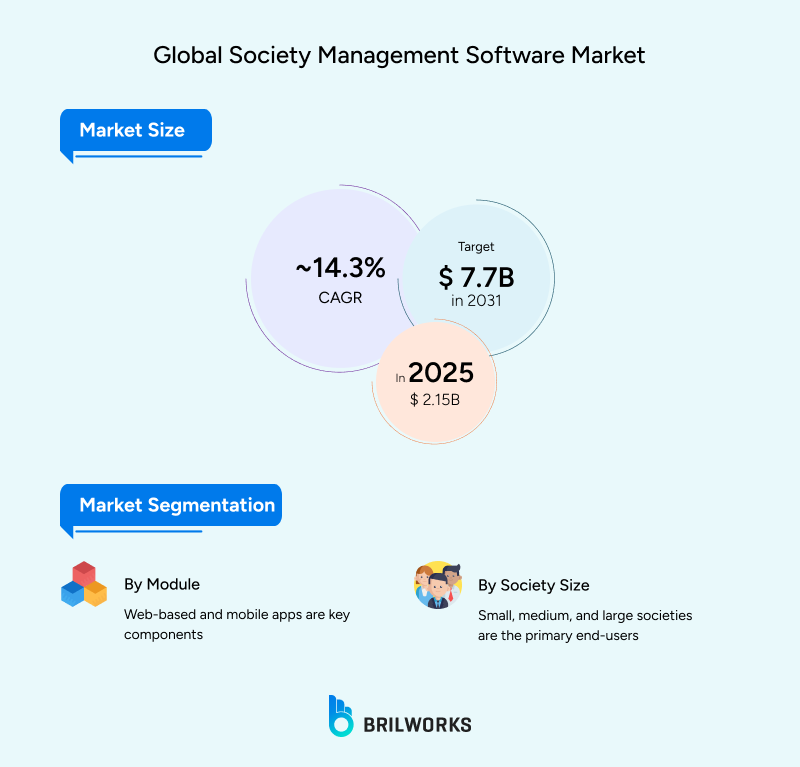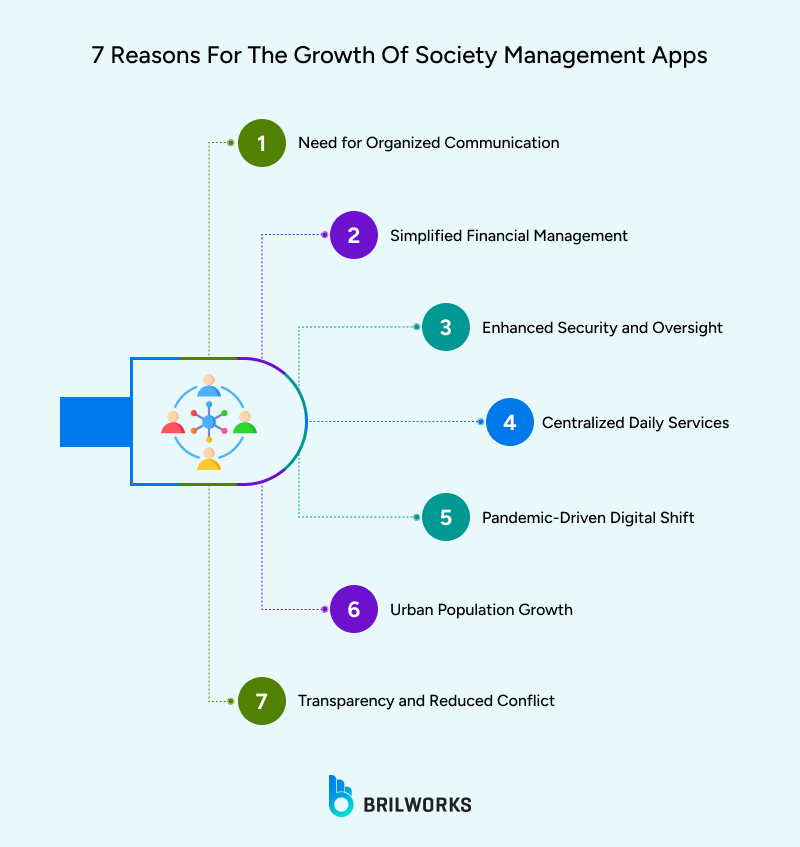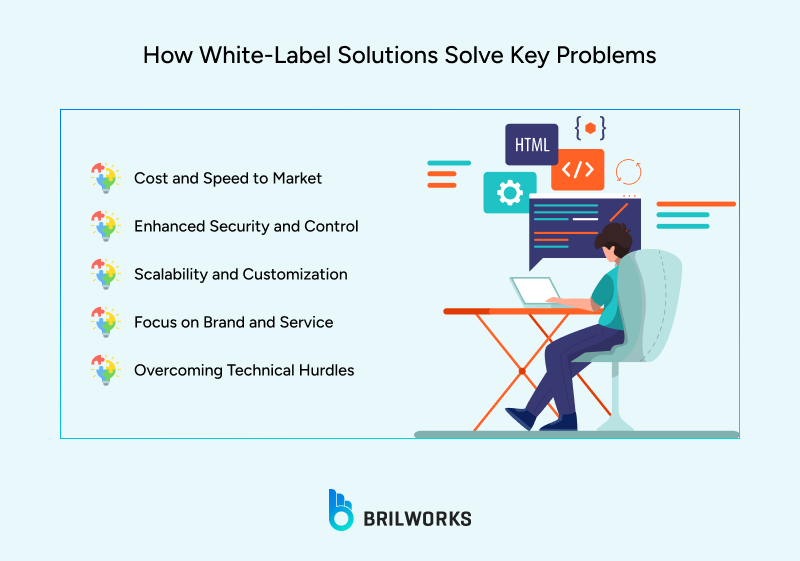COOPERATION MODEL
ARTIFICIAL INTELLIGENCE
PRODUCT ENGINEERING
DevOps & Cloud
LOW-CODE/NO-CODE DEVELOPMENT
INDUSTRY
FRONTEND DEVELOPMENT
CLOUD DEVELOPMENT
MOBILE APP DEVELOPMENT
LOW CODE/ NO CODE DEVELOPMENT
EMERGING TECHNOLOGIES








The real estate industry is under the influence of the digital revolution, and technology is being rapidly adopted across operations. That’s why “society management apps” have become the new buzzword. What started as a niche concept has now grown into a multi-million-dollar industry.
Recent data shows that the market for society management software is expected to double by 2032, reaching about $7.7 billion with a 14.3% annual growth rate. Once limited to tier-1 cities, these apps are now spreading quickly to tier-2 regions too.
There are many reasons behind their growing popularity, and in this article, we’ll explore both the benefits driving adoption and the challenges that still need to be addressed. But this growth is not without challenges, which we will also cover in this article.
But before getting into adoption and challenges, let’s take a look at what exactly society management apps are.
Society management app helps organize everything from visitor entry records and monthly maintenance payments to polling and announcements. By bringing all community management tasks together, they reduce manual work and confusion.
Residents can use the app to make maintenance payments, report issues, or get updates on society news. For management committees, it makes tracking finances, managing staff attendance, etc. These apps help residents and administrators enjoy a more connected and organized community.
The demand for society management apps is growing rapidly. Below are the top reasons why these solutions are in demand.
Before these apps, people used messy WhatsApp groups or paper notices for communication, and important updates often got lost. Apps offer one official channel for announcements, emergency alerts, and discussions. This helps reduce conflicts and makes sure everyone gets the same information, leading to a more organized community.
Collecting maintenance fees by hand is slow and often leads to mistakes. These apps automate billing, send reminders, and give digital receipts. Residents can pay online, and management can easily track payments. This makes the financial system more transparent and efficient for everyone.
Apps help manage security logs and visitor entries digitally. Residents can pre-approve guests and delivery personnel, reducing wait times at the gate. Features like panic buttons or emergency contact alerts provide a greater sense of safety. This digital record improves accountability for all entries and exits.
Booking common amenities like the gym or party hall was often a manual, frustrating process. Apps allow residents to check availability and book facilities instantly. They can also log service requests for plumbing or electrical issues, tracking the status until the problem is resolved.
The COVID-19 pandemic made contactless interactions a must. Apps became the main way to share health updates, manage guest lists, and allow touchless entry. Because of this need, more communities started using these apps for safer, remote management.
With more people living in apartments and gated communities, manual management is no longer practical. Large communities with many families need digital tools that can grow with them. These apps help manage the complex needs of modern urban living more efficiently.
When financial records, meeting notes, and policy decisions are stored in an app, all residents can see them. This openness helps prevent doubts about mismanagement. Having clear records also makes it easier to settle disputes fairly, creating a more peaceful community.
These apps collect sensitive information about residents, such as family details, payment history, and movement records. If there is a data breach, this information could be exposed. Many apps do not have strong security, which makes them targets for hackers. Residents are right to worry about who can see their private data.
Not all residents are comfortable using smartphones, especially older people.
An app can exclude them from important community updates. This creates a two-tier system in which tech-savvy users are informed while others are left out, defeating the goal of unified communication.
Premium apps cost a lot, and these costs are often passed on to residents through higher fees. Smaller housing societies may not be able to afford them. Setting up the app is also complicated, since someone has to enter all the resident and property information by hand, which takes a lot of time.
Apps often have bugs, crashes, or slow performance, which frustrates users. When issues come up, customer support is usually slow or not helpful. An app that does not work well is worse than having no app, because it makes people lose trust in management.
Even with an app, it is hard to get residents to take part. Many people ignore notifications, do not vote in polls, or forget to update their information. When engagement is low, the app is less effective and important community decisions can be delayed.

Building an app from scratch is extremely expensive and time-consuming. A white-label solution is a ready-made product that can be customized and launched in weeks, not years. This allows property management companies to offer a modern solution without massive upfront investment, making it viable for smaller firms.
A trusted white-label development company spends a lot on securing their main platform. This means all client apps get strong security, regular updates, and data encryption. One provider can keep a higher security standard than many small startups building separate apps.
Standard apps often do not have features needed for a specific region or company. White-label platforms are flexible and let developers add custom modules for local payment options, rules, or special amenities. This creates a tailored experience that generic apps cannot offer.
Property managers can use a white-label app to strengthen their own brand, not a third party's. They own the customer relationship. This shifts their role from just explaining a generic app to offering a seamless, branded service, which increases client loyalty and allows them to compete on quality.
Most property managers are not tech experts. White-label software provide them with a stable, pre-tested product and dedicated support from the developer. This eliminates the nightmare of bugs and glitches that they would have to manage if they built their own in-house system from zero.
Society management apps are becoming more popular because they help solve real problems with communication, finances, and security in today’s communities. However, generic apps still have issues with cost, security, and getting users involved.
That’s why white-label solutions are a practical choice for the future. They let companies launch a branded app quickly, securely, and at a lower cost. With a customizable platform, businesses can give their communities an experience that fits their needs and get the most out of the technology.
Get In Touch
Contact us for your software development requirements
Get In Touch
Contact us for your software development requirements